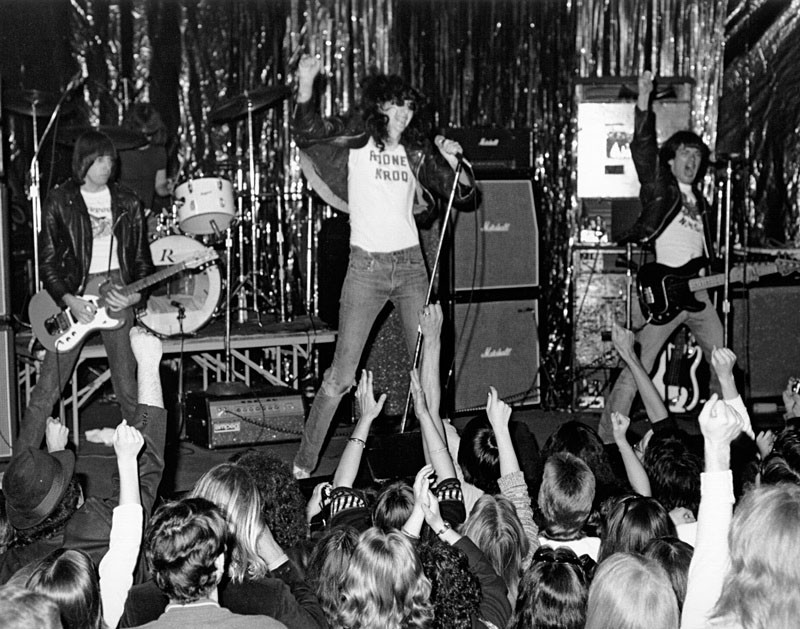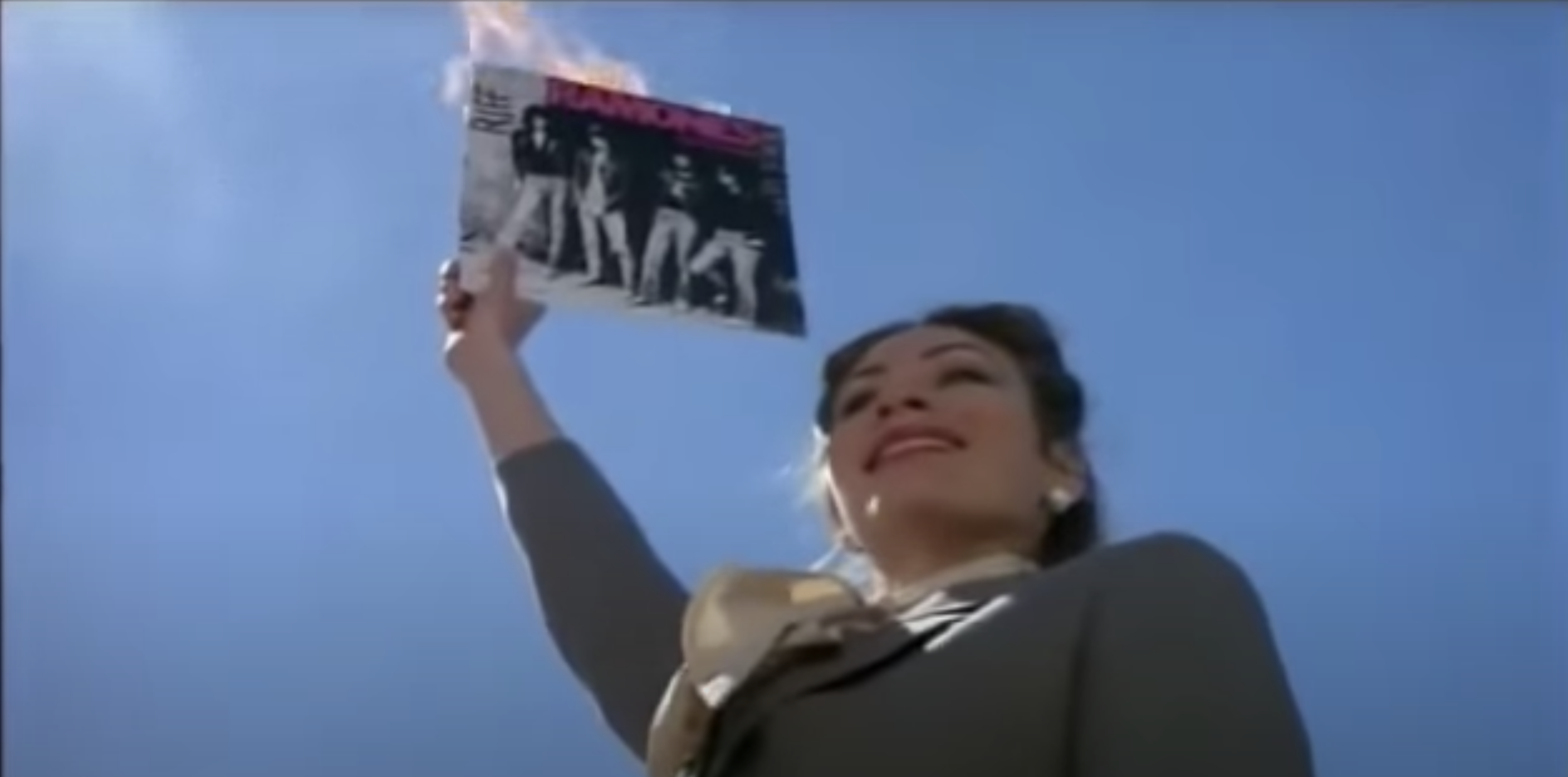Some adults have argued that punk rock — specifically, music from the Ramones — represented an attitude of teens going against what their parents were telling them to do. Based on our findings, music from the Ramones not only represented those sentiments, but also promoted them as well. However, this was also where the beliefs of adults and youth clashed since there was no mutual understanding in the punk rock genre in general. With this, the Ramones wanted to be able to connect with the youth, and, in a way, become a part of them. We also see this later in Allan Arkush’s and Joe Dante’s 1979 film Rock ‘n’ Roll High School, which featured the Ramones in the cast.
Youth perspective
Punk, in general, was not widely accepted in the adult community. Rather, it was seen “as messy teen anarchy, menacing and destructive” (Gaines 10) to the point where they did not see it as music after the Sex Pistols became popular in the United States.
From the youth’s perspective, it seemed as though parents or society held certain expectations of them without explicitly telling them how to do so.
“You take parental indifference, a crappy educational system, lots of drugs media overload, a society with no values except the hysterical emphasis on physical perfection, and you end up with these little nubbins” -Lester Bangs (Gaines 45).
As youth do today, punk rock music became a bandwagon for youth to connect with each other’s experiences. At the time, it was a way for teens and young adults to “[flaunt] one’s damage [as] a part of punk’s appeal” (45). As mentioned in the previous section, the youth were faced with several different issues of their own, whether it was from their family and/or community. In a way, becoming fans of a group or genre that encompasses individuality also made them individualistic as well. Especially since the fans were young, it would make sense for youth to make something their own. Gaines mentions that “each successive musical generation seeks to reclaim, renew, or reject the old forms in a spirit of take what you need and leave the rest.” (20)
“Like many thirteen year olds, we thought it was funny at first, but then really got into it and turned all our thirteen year old friends on to it” -Robert Holm, drummer from New York (Gaines 11).
How did the Ramones appeal to teens?

In 1976, the year that The Ramones released their first album, the band gave an interview to Kris Needs of British rock magazine Zigzag in which Johnny Ramone claimed, “I want young kids, you know, right up the front. We want to reach high schoolers” (Needs). Needs noted that, when seeing The Ramones perform at the Roundhouse in London, he saw “enraptured youths … mouthing every word of the songs they performed from the albums (admittedly not the most demanding feat)” (Needs). This is one way that The Ramones appealed to their target audience: Making their songs easy to memorize and scream along to with repetitive, simple lyrics and uncomplicated melodies.
“We want to reach high schoolers” -Johnny Ramone (Needs).
Gaines also mentions that the “Ramones played for the kids, not the critics” (45). Their songs were uplifting, but not in the traditional sense of telling someone that they would be able to get through their struggles. Rather, as mentioned earlier, the Ramones wanted to sympathize with the “angry kids” (21) and better understand the challenges that teenagers and young adults were faced with in their communities. Another way that the Ramones appealed to the rebelliousness of youth was by featuring urban graffiti in their album covers and promotional photos.
Rock ‘n’ Roll High School (1979)
Allan Arkush and Joe Dante’s Rock ‘n’ Roll High School features the Ramones and perfectly encompasses the Ramones’s effect on teenagers in the 1970s and 1980s. In the film, Riff Randell is a teenager who is a huge Ramones fan. Her principal, Togar, takes away her ticket to see the Ramones, then works with the students’ parents to burn their Ramones records. In response, the students enlist the Ramones to perform in the school before the students blow it up (Rock ‘n’ Roll High School).
“Do your parents know you’re Ramones?” -Principal Togar (Rock ‘n’ Roll High School).
The movie mentions the idea of the “eternal allure of being a teenager at war with parents” (Rabin) because of the Ramones’ impact on the teenage characters. In addition, Rock ‘n’ Roll High School shows how that same war is carried into the high school Principal Togar. Throughout this movie, the principal represents the parents of the time — at least, according to Gaines — whose authority prevented them from listening to not only the Ramones, but to other artists in the punk genre as well (Rabin).
Riff Randell is the ideal Ramones fan, young and devoted. By participating in the film, the Ramones could draw a link between their music and the rebellious youth that they wanted support from, and hoped to gain their attention. The film also heavily features their music, including a lengthy concert scene with a sing-along to “Teenage Lobotomy,” also off of Rocket to Russia. Before the students and Ramones take over the school, Principal Togar burns a copy of the album (Rock ‘n’ Roll High School). This further helped to promote Rocket to Russia specifically, even though they had released more albums since, perhaps because its tracks such as “Sheena Is a Punk Rocker” were especially geared toward the teen audience.
